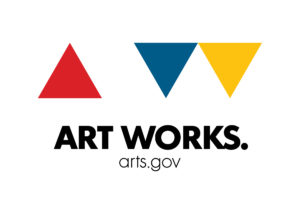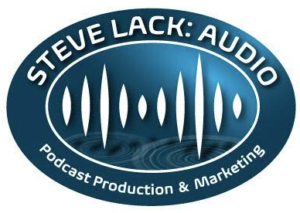By Katharina Fritz
When Natalie Portman gave her commencement speech at Harvard University this year, she provided the graduates with rare and refreshing advice:
Your inexperience is your asset.
“If I had known my own limitations I never would have taken the risk,” she said on taking on her role in Black Swan. “And the risk led to one of my greatest personal and professional achievements.”
At WIFV’s Talent Roundtable on June 25, award-winning Voiceover actress and coach Melissa Leebaert had a similar message for the attendees. Your inexperience, and the confidence of not knowing what you don’t know, as Melissa put it, will allow you to take chances and gain a wide array of experiences, and lead you down a path you may have never even imagined.
When Melissa first started out to pursue a career in voiceover, she was told that “real actors don’t do voiceover”, that voiceover is the lowest tier for actors and that there was neither a profitable future, nor any artistic fulfillment in it. She didn’t let those comments intimidate her, and today, Melissa stands proof to the fact that voiceover acting is a changed business. She has done the voiceover for Obama’s ’08 campaign and has won numerous awards, including an Emmy for Best Narration for her work on Discovery’s Series “An Inside Look.” In today’s digital age, many A-list celebrities do voiceover work, establishing the business as a serious and promising profession.
It is important to stress, though, that voiceover acting has evolved into a fast-growing, fast-paced and highly competitive business. For that reason, you need to think of voiceover acting as a long-term career and of your demo reel as your way of interviewing for a job. The big difference to a regular job interview is this: you have about 5 seconds to make an impression with nothing but your voice. Professional attire and a pretty resume will, although important, not help you there. Your voice needs to grab the person listening instantaneously, especially because that one chance you were given may also be your last chance. Why would a producer listen to a second demo if he wasn’t impressed by your first performance?
Melissa Leebaert, who not only took time to answer everyone’s questions but also did so in an extremely entertaining way, used some great metaphors to let the importance of a good demo sink in: “Ask yourself this: If you were a singer, at what point would you make an album?” Your demo represents your combined work efforts, so you don’t want to make one right away just to have one, and then work on a better one. Prepare yourself for that one chance and build your foundation first, study with multiple coaches on different subjects to broaden your range. People will want to hear you perform, not read. You have to learn how to absorb your character, even if you’re only lending the voice. Imagine that one person in front of you, that one person who is listening. The simple fact is that your success doesn’t necessarily depend on your age or gender. Sure, the man doing the authoritarian male voice of God will probably never run out of a job, but in an ever changing industry, there is a market for everything. You just have to find it. This is why it is so important to vary your range and try different types of voiceovers.
Melissa also made it clear that it can make a tremendous difference if you get a professional to make your demo. But her advice to “let someone else build the spaceship while you learn how to be the astronaut” inevitably raised a legitimate concern among many in the room, especially among those who are just starting out in the business: the cost-benefit-factor. In fact, nobody even had to ask the question at the roundtable; Melissa knew that it was on everybody’s mind. So she told us a story about her own struggles and fears, about how she started out in the voiceover business. In 1999, Melissa, a single mother, invested in building her own recording studio; and she was just as terrified as she was after giving birth, afraid that she wouldn’t get hired because of her role as a mother. Because she was part of a business in which you have to be available 24/7. It scared her so much that she showed up at the studio “with a baby in a bucket” only two weeks after giving birth. But she didn’t quit, because she loved what she was doing, and because she was determined to succeed. In the end, it all comes down to that determination and your willingness to take a risk in order to build the future you imagine for yourself. It is a tough business, especially for women who are paid less and are often at a disadvantage. When asked in a study conducted by the SAG, the majority of men and women generally had no preference towards a male or a female voice, and yet, over 70% of all voiceover work is done by men. But, – and this is where Melissa may have made the most important point in terms of feminism and gender equality – there are essentially two choices to confront this: you can whine and complain about it or you can put yourself out there and change the business by proving that you are worthy of the recognition you deserve and have every right to work and succeed in the voiceover business. There are a million ways to get your voice out there without landing a huge job. You could, for example, do your friends’ voicemail, or offer to record a restaurant or a hair salon’s voicemail message. Think of creative and innovative ways to make your voice heard.
When asked how to stay in touch and cultivate relationships in such a highly business-driven environment, Melissa’s advice to the attendees on how to make sure producers listen to their material was not to get to the producer, but to get to the person who answers the phone, the gate-keeper. Make that person your pal; treat him or her as an equal and with the same respect as you would the producer. Not only can the gate-keeper make sure your material reaches the producer or pass on your demo with a special note, that person could in a few years be said producer. It is also important to always remember that there is a direct correlation between marketing and success. Especially in an industry like the entertainment business, nothing will ever be “the way it used to be.” You need to be proactive when it comes to marketing and continuously building your brand. As in any other business, it’s all about the packaging.
“Don’t just make a reel, make an album.” – Melissa Leebaert














